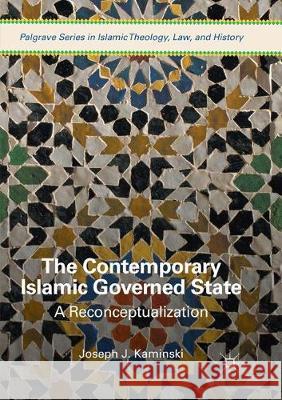The Contemporary Islamic Governed State: A Reconceptualization » książka
topmenu
The Contemporary Islamic Governed State: A Reconceptualization
ISBN-13: 9783319860565 / Angielski / Miękka / 2018 / 331 str.
Kategorie:
Kategorie BISAC:
Wydawca:
Palgrave MacMillan
Seria wydawnicza:
Język:
Angielski
ISBN-13:
9783319860565
Rok wydania:
2018
Wydanie:
Softcover Repri
Ilość stron:
331
Oprawa:
Miękka
Wolumenów:
01











